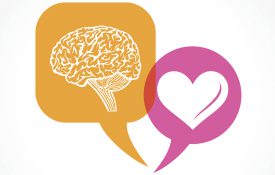-
When paying more stops paying off
The Washington Post: Everyone likes money. Ask people who say they don’t care about money if they’ve ever turned down a raise. Wait for the awkward pause. But money is funny, too. However much it can motivate people to work harder and better, it also has curious—and sometimes counterproductive—effects on their performance. A growing body of research shows that, in some cases, paying people more not only fails to change their behavior but actually makes them perform even worse. Money can be a surprisingly poor incentive.
-
The New (Malevolent) Ageism
The Huffington Post: America is a rapidly graying society. This demographic trend has been underway for a while -- and anticipated for a long while -- yet some of its implications are just now coming into focus. Most notably, the aging of America will almost certainly trigger a retirement crisis, with elderly boomers competing for limited financial and medical resources -- and working longer just to stay afloat. The elderly have never been honored in American society. They have more often been stereotyped, stigmatized and pitied as outdated and weak, both physically and mentally.
-
Compassion Can Be Cultivated
Pacific Standard: Can people be taught to act more altruistically? Newly published research, measuring both brain activity and behavior, suggests the answer just may be yes. “Our findings support the possibility that compassion and altruism can be viewed as trainable skills rather than stable traits,” a research team led by Richard J. Davidson and Helen Weng of the University of Wisconsin-Madison writes in the journal Psychological Science. Specifically, they report that taking a course in compassion leads to increased engagement of certain neural systems, which prompts higher levels of altruistic behavior. Read the whole story: Pacific Standard
-

Brain Can Be Trained in Compassion, Study Shows
A study shows that training adults in compassion can result in greater altruistic behavior.
-
New Research From Psychological Science
Read about the latest research published in Psychological Science. Deliberation's Blindsight: How Cognitive Load Can Improve Judgments Janina A. Hoffmann, Bettina von Helversen, and Jörg Rieskamp When one is under a high cognitive load, why does task performance increase in some cases but decrease in others? Participants performed a multiple-cue judgment task in which they switched from a rule-based to a similarity-based judgment strategy as cognitive load increased. This switch in strategy harmed their performance on linear judgment tasks but improved their performance on nonlinear judgment tasks.
-
Still Charting Memory’s Depths
The New York Times: MONTREAL — In many ways, the Obama administration’s new plan to map the human brain has its origins in the work of Brenda Milner, the neuropsychologist whose detailed observations of an amnesia patient in the 1950s showed how memory is rooted in specific regions of the brain. “Prior to Brenda Milner’s discoveries, many behaviorists and some cognitive psychologists followed the lead of Freud and Skinner in abandoning biology as a useful guide to the study of memory,” the Nobel laureate Dr.

